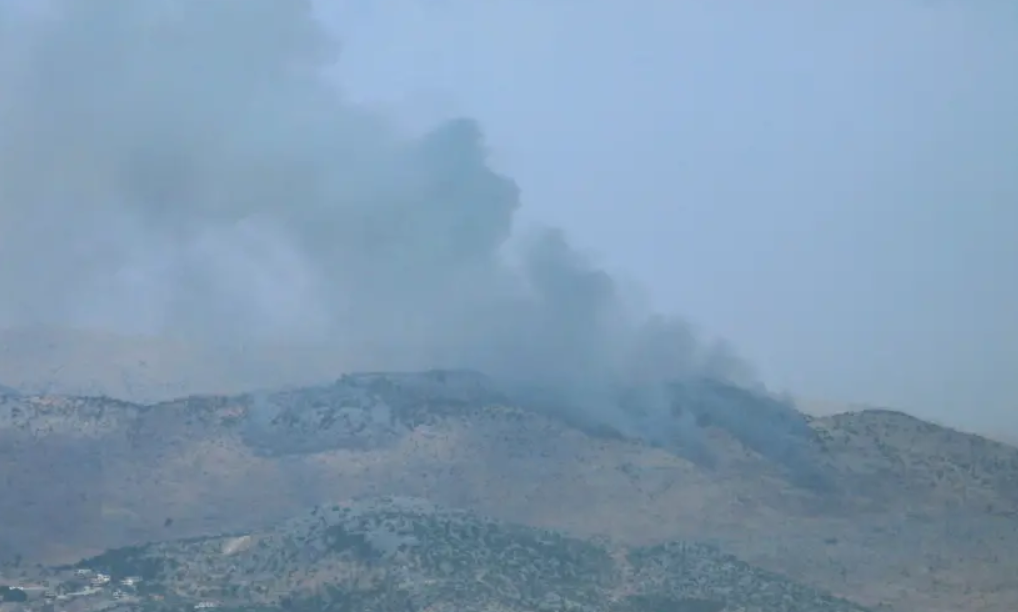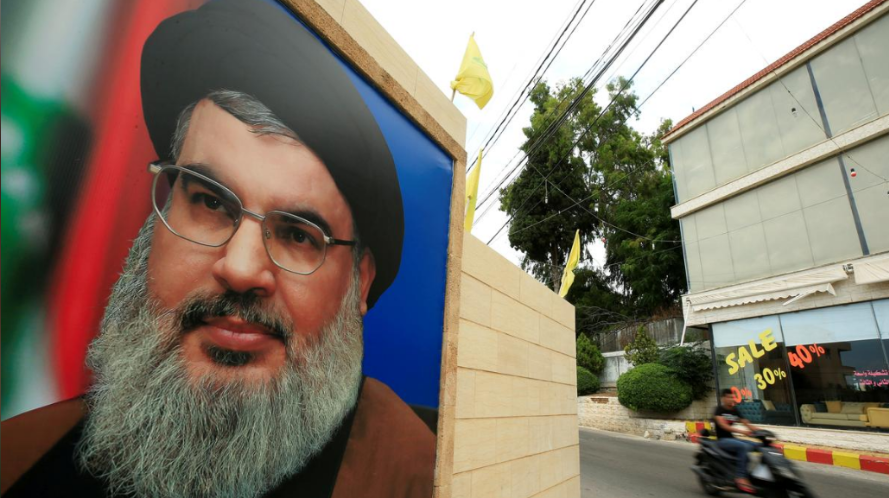
Israeli Prime Minister Benjamin Netanyahu issues a statement at the Israeli Defense Ministry in Tel Aviv, Israel, July 27, 2020. /Reuters
Israeli Prime Minister Benjamin Netanyahu issues a statement at the Israeli Defense Ministry in Tel Aviv, Israel, July 27, 2020. /Reuters
On Monday, Israeli Prime Minister Benjamin Netanyahu said Israeli forces thwarted an attempt by Hezbollah to infiltrate across the Lebanon frontier, which the Iranian-backed Shiite group denied.
"A Hezbollah squad infiltrated Israeli territory," Netanyahu said. Saying that Lebanon had "paid a heavy price" for Hezbollah attacks on Israel in the past, Netanyahu cautioned the group's leader, Sayyed Hassan Nasrallah, "not to repeat this mistake."
Lebanese sources had told Reuters that Hezbollah carried out an operation against the Israeli military, while dozens of Israeli shells were also witnessed to have hit the disputed Shebaa Farms area along the frontier. Fires burned and smoke rose from the area, but no casualties were reported by Israel or Hezbollah.

Smoke rises from the disputed Shebaa Farms area as seen from Marjayoun village in southern Lebanon, Lebanon, July 27, 2020. /Reuters
Smoke rises from the disputed Shebaa Farms area as seen from Marjayoun village in southern Lebanon, Lebanon, July 27, 2020. /Reuters
Occupied by Israel, the Shebaa Farms is claimed by Lebanon. The United Nations regards it as part of Syrian territory captured by Israel in the 1967 Middle East war.
According to the Israeli military, all residents of the border area were ordered indoors for an hour after an exchange of artillery fire between the two sides, but shortly after the situation had returned to normal, with the Lebanese media reporting that the mood was also calm in villages in southern Lebanon.
"Hezbollah should know it is playing with fire," Netanyahu said in a televised address from Israel's defense ministry headquarters in Tel Aviv. He cautioned that any attacks from Lebanese territory would draw a powerful response.
A Hezbollah-affiliated news network later reported that Israel had attacked near a village on the Lebanese side of the border.
Hezbollah, which last fought a war with Israel in 2006, denied that its forces tried to cross the frontier and said in a statement that the Shebaa Farms incident was "one-sided."
"There were no clashes or opening of fire from our side in today's events," Hezbollah said, while leaving open the possibility to revenge one of its operative who was killed by an Israeli strike in Syria several days ago.

A man rides a motorbike past a portrait of Lebanon's Hezbollah leader Sayyed Hassan Nasrallah, near Sidon, Lebanon, July 7, 2020. /Reuters
A man rides a motorbike past a portrait of Lebanon's Hezbollah leader Sayyed Hassan Nasrallah, near Sidon, Lebanon, July 7, 2020. /Reuters
"Our response to the martyrdom of Ali Kamel (Mohsen)... will surely come," Hezbollah said, referring to the deceased fighter.
The reported exchange of fire comes after a day after Hezbollah's deputy chief Sheikh Naim Qassem dismissed the prospect of an escalation of violence between the Iran-backed movement and Israel despite increased tensions following the incident.
Last week, an Israeli airstrike targeting pro-Iranian militants in Syria claimed the life of a Hezbollah fighter. But later Israel reportedly sent a message to Hezbollah saying it did not intend to kill the operative and it also did not have knowledge of the group's presence in the area. A warning against any military response was also contained in the same massage.
While both sides were expected to refrain from escalating the situation, the Israeli military boosted its forces on its northern front, bracing for a potential Hezbollah retaliation as its leader vowed last year that the group would respond if Israel killed any more of its fighters inside Syria.
In recent months, Israel has stepped up strikes on Syria in what Western intelligence sources say is a shadow war approved by Washington that has undermined Iran's military power in the region without triggering a significant increase in hostilities.
Hezbollah has deployed fighters in Syria as part of Iranian-backed efforts to support President Bashar al-Assad in a conflict that started in 2011.
The bases in eastern, central and southern Syria, which Israel has hit in recent months, are believed to have a strong presence of Iranian-backed militias, according to intelligence sources and military defectors familiar with the locations.
(With input from agencies)